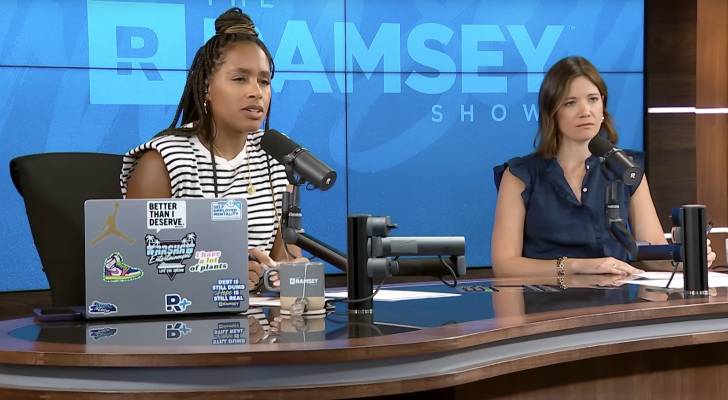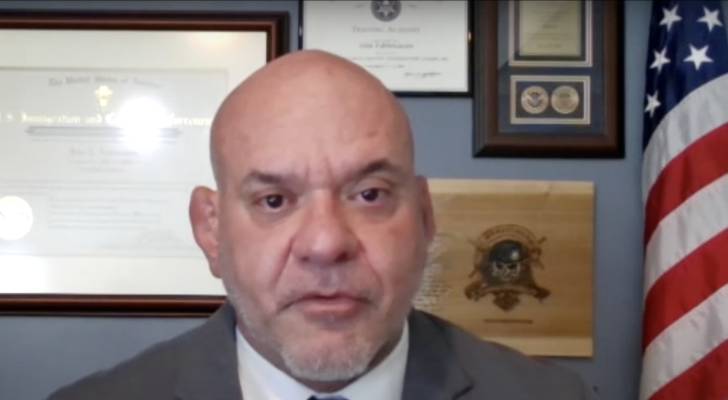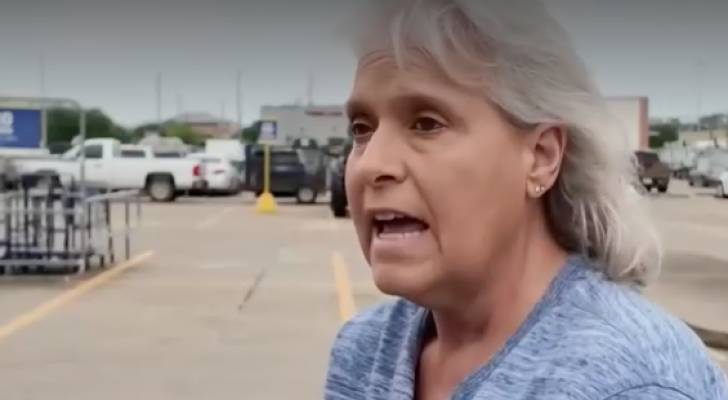West Virginia veteran says she found black mold in her new home just weeks after moving in — despite it passing an inspection. The Ramsey Show weighs in on how to move forward


Melissa, a disabled veteran in Charleston, West Virginia, thought she’d found the perfect home. She quickly discovered how wrong she was. Within weeks of moving in, she told The Ramsey Show, her family started getting sick, displaying allergy-like symptoms. Don’t miss Thanks to Jeff Bezos, you can now become a landlord for as little as […]
Colorado businesses facing $8 million in fines for employment law violations, including hiring unauthorized migrant workers — but here’s why undocumented workers are paying the highest price


Three Denver-area businesses face a combined $8 million in fines for allegedly employing unauthorized migrant workers in contravention of employment law. U.S. Immigration and Customs Enforcement (ICE) special agent Steve Cagen told Fox31 News that the fines are designed to uphold the law and “promote a culture of compliance." Don’t miss Thanks to Jeff Bezos, […]
San Jose man flabbergasts Dave Ramsey when he admits he’s ‘secretly worth millions of dollars’ — and he’s kept his ‘spender’ wife of 5 years in the dark about their true financial situation


When Damon from San Jose called into The Ramsey Show, he didn’t ask how to get out of debt — he asked whether he should tell his wife they’re secretly worth millions. His question of whether he should ever disclose his secret to his wife caught listeners — and hosts Dave Ramsey and Ken Coleman […]
New York woman being crushed by ‘nightmare’ $230K student debt due to parents’ ‘horrific financial advice’ — and The Ramsey Show hosts push her to finally ‘get serious’ about her life


When Lexi called into The Ramsey Show from New York, her voice carried the weight of crushing debt and the pressure of years of following flawed familial guidance. Lexi admitted she’d made a lot of "really bad financial decisions” in order to fulfill her parents’ dreams. They wanted her to pursue medicine. Don’t miss Thanks […]
Dave Ramsey gets frank with Seattle woman $100K underwater on Florida second home — why he says there’s only 1 way for her to defuse this ‘ticking time bomb’


When Sarah from Seattle recently called into The Ramsey Show, Dave Ramsey described her situation as “a ticking time bomb." She owns a condo in Seattle with a $2,300 monthly mortgage plus homeowners association (HOA) fees, and purchased a second property in Florida last year at the top of her budget. Don’t miss Thanks to […]
‘It’s heartbreaking’: More than 100 victims banded together through Facebook to seek justice after Houston business owner defrauded them of $1M — here’s how to spot a sketchy builder


For the third time, Amanda Sparks, the owner of A&L Sheds, has been arrested — this time, in Montgomery County, Texas. Authorities allege she scammed more than 100 people out of more than $1 million by promising to build sheds and tiny homes that were never delivered. Sparks’ previous arrests occurred in Gray and Harris […]
Some US drivers say they’re spending upwards of $100 for a straight-forward oil change. Struggling with the sticker shock? Here’s how to save money at the mechanic’s
It’s a routine part of car maintenance, but some drivers are shocked to see their oil change bills climbing toward $100, even without extra repairs. “It’s ridiculous," one driver told CBS News. And there’s data to back it up: Yelp reportedly collected over 30,000 quotes showing the average cost for an oil change is now […]
‘Being beat on with a sledgehammer’: Florida couple speak out after city issues ‘mind-blowing’ $366K fines for code violations they fixed — and they’re not the only ones facing excessive fees


What would you do if your city placed $366,000 in liens on your home after inspectors observed minor violations like broken window frames, cracked outlet covers and peeling paint? If you were Lauderdale Lakes residents Kenneth and Mildred Bordeaux, a Florida couple in their 80s, you’d hire a lawyer and fight back. "I feel like […]
‘He stole all the money’: How a West Virginia woman lost $8M, started over with $531K and a plan — here are the steps Ramsey Show experts offered her to help her rebuild


After receiving an $8 million settlement following her husband’s fatal workplace accident in 2008, Mikeal, a 53-year-old widow from Charleston, West Virginia, entrusted the money to a close friend who worked at a bank. Two years ago, she discovered it was gone. Don’t miss I’m 49 years old and have nothing saved for retirement — […]
How 1 plastic shed in a Florida backyard set off a years-long legal battle that’s costing local homeowners thousands of dollars in HOA assessments — ways to avoid the same fate


Formerly friendly neighbors in Stonebriar, a quiet subdivision in northern Pinellas County, Florida, are at odds over an $82,000 special assessment the homeowner’s association (HOA) has levied. It’s a lot of money — $1,400 per household. Don’t miss I’m 49 years old and have nothing saved for retirement — what should I do? Don’t panic. […]
